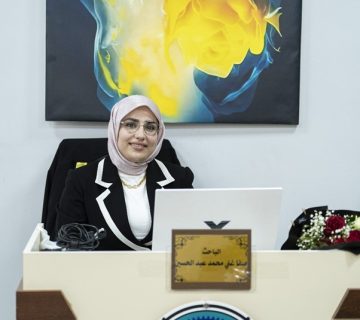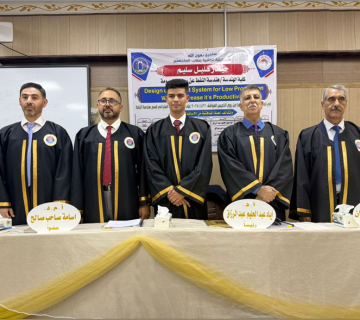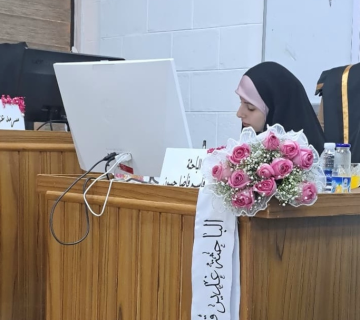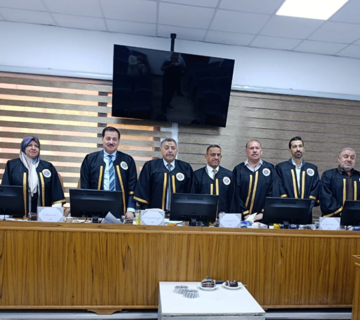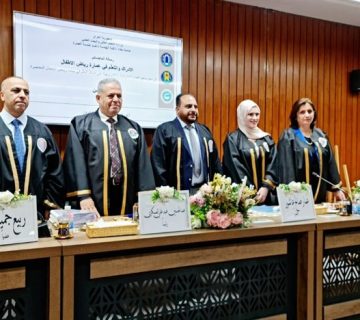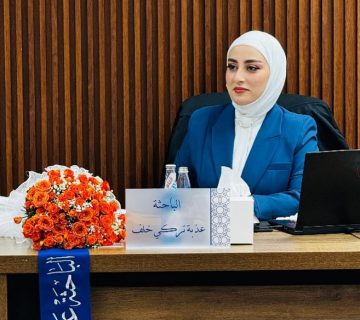The College of Engineering at the University of Baghdad witnessed the public defense of the Master’s thesis by Amor Talal ALjajawy in the Department of Chemical Engineering. His thesis, titled “Application of Two and Three Dimensional Electrodes in Electrocoagulation Systems for Removal of Azo Dyes from Aqueous Solution” was presented on Thursday, May 29, 2025, in Professor Mahmoud Omar Hall within the Department of Chemical Engineering, under the supervision of Prof. Dr. Rasha Habeeb Salman.
The present study aimed to study their removal by utilizing two and three-dimensional (3D) Electrocoagulation (EC) systems. Aluminum and Ni foam (NiF) would be utilized as the main anodes, besides Fe foam or stainless steel (SS) mesh electrodes as cathodes.
It was concluded that the Al-NiF anodes were very effective in removing MO dye without a long time of treatment or high Ni leaching in comparison with adopting the Al-Al or NiF-NiF as anodes. Response surface methodology was utilized to predict the optimum conditions for removing 100 mg/L of MO dye by considering current density in the 4–8 mA/cm2 range, NaCl concentration in the range of 0.5–1 g/L, and electrolysis time of 10–30 min as controlling parameters. A very high MO dye removal percentage was achieved (97.74%) at 8 mA/cm2, 1 g/L of NaCl within 30 min of electrolysis, and the consumed energy was 36.299 kWh/kg.
The research provided several key recommendations, including investigating the effect of Ni Foam electrode on the Electrocoagulation process. Moreover investigating the Alum sludge as third electrode with different dosage.
Following the academic discussion with the defense committee, the researcher was awarded a Master’s degree in Chemical Engineering.



